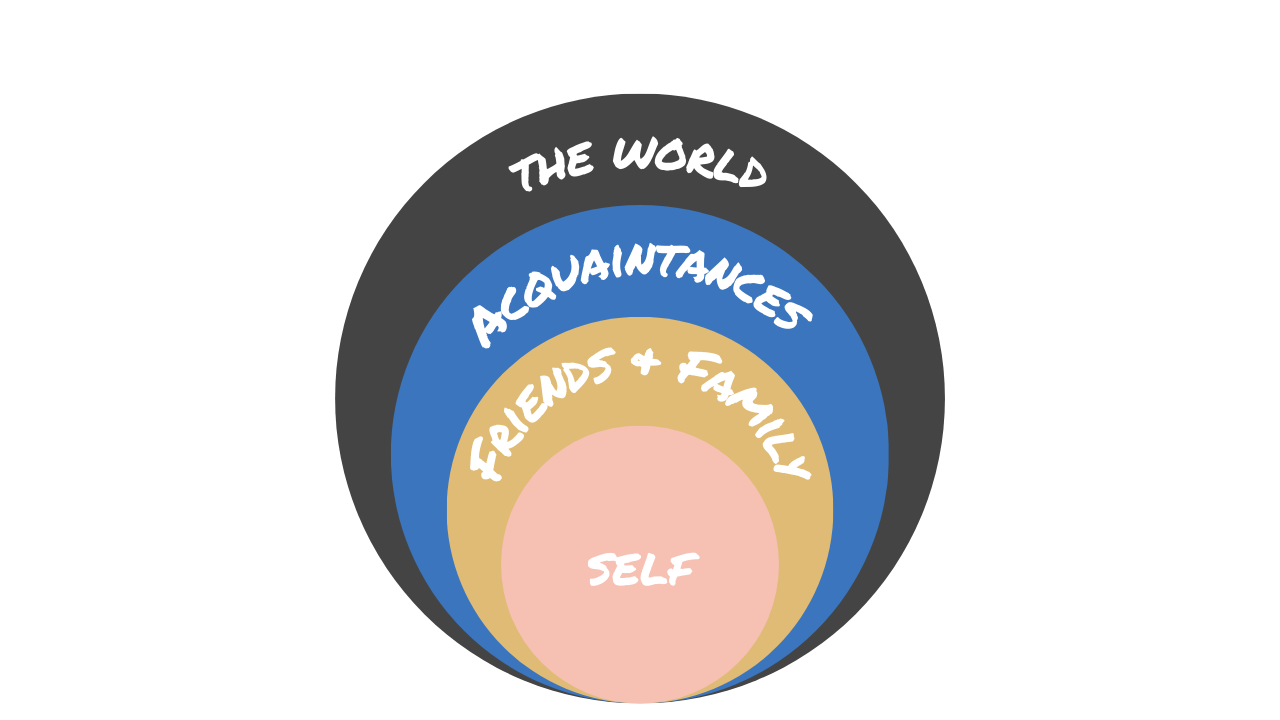The Art of True Care
At its core, caring is about giving attention and concern to what matters. True care goes beyond superficial gestures; it’s about being present and intentional with our time, energy, and actions. Think of it this way: If person A donates a large sum of money, but the intention is to gain status (and reduce taxes), this isn’t genuine care. But if person B regularly donates a very small amount of money wholeheartedly (and it’s all they can afford), the intention comes from a genuine place. So despite person A’s greater level of impact on the surface (which is still net-positive), only person B’s actions would demonstrate authenticity and true care.
For this reason, the art of caring starts with having greater self-awareness — understanding our own character, and how our behaviors impact ourselves and others. Without self-awareness, our efforts to care can be misdirected or hollow. This is why true care involves:
- Empathy: Feeling and understanding someone else’s experience.
- Empathy: Feeling and understanding someone else’s experience.
- Action: Taking steps that align with our empathetic feelings.
- Consistency: Showing up and acting in caring ways regularly, not just when it’s convenient or visible to others.
The Importance of Prioritizing Care
With countless demands on our time and energy, it’s vital to prioritize what we care about. But this prioritization requires a mindset shift — from being reactive to intentional.
1. Self-Care: To be able to care for others effectively, we need to first care for ourselves. Self-care isn’t selfish; but instead, essential for replenishing our energy and ensuring we are mentally and physically equipped to support those we care about. Prioritizing self-care can be as simple as taking time to rest, engaging in activities that bring joy, or setting boundaries to protect our mental state.
2. Living Intentionally: In order to prioritize our cares, we must live with intention. This means making conscious choices about where we direct our attention and energy. It involves evaluating our commitments and ensuring they align with our values and goals. Through intentional living, we avoid the trap of spreading ourselves too thin, so we can focus on what truly matters.
3. Setting Boundaries: Even though it can be difficult for many of us; effective caring requires us to be able to set boundaries. When we recognize our limits and communicate them to others, our boundaries act as a protection mechanism for our energy and time. By saying “no”, we make more room for the “yes” we care most deeply about.
Virtue Signaling vs Genuine Care
In today’s social media-driven world, virtue signaling (aka displaying superficial gestures of care) is pervasive. The value of giving someone a like on social media has become as worthwhile as the time and energy it takes for someone to double-tap their screen (pretty low). And while these gestures can raise awareness, they often lack the depth and follow-through of genuine care.
1. Surface-Level Gestures: Virtue signaling involves actions meant to gain social approval rather than effect real change (sometimes it does both). It’s the difference between posting a supportive hashtag and actually volunteering your time or resources to a cause.
2. The Impact of Virtue Signaling: When caring becomes performative, it undermines the authenticity of our actions. It can lead to disillusionment and cynicism, both in ourselves and others. On the other hand, genuine care can foster trust, connection, and meaningful change.
3. Moving Beyond Virtue Signaling: To move beyond virtue signaling, we must cultivate self-awareness and intention. With each action, we need to ask ourselves whether we’re doing it for potential praise and significance, or because it aligns with our true values.
Writing about virtue signaling isn’t meant to demonize anyone who enjoys liking posts with their thumbs. I’ve certainly been there myself. In fact, multiple superficial small gestures can still compound into real-world positive change (so ironically, both can be true). The point is: by having greater awareness about aligning our sincerity with our actions, it allows us to become more consistent with ourselves and with others.
Circles of Care

Now when it comes to caring, there are an infinite number of things we could care about. Given our limited time, energy, and resources, how can we better prioritize our care? Here are four areas where we can identify and organize our care:
2. Second Circle: Close relationships like family and close friends. These are the people we care for deeply and interact with on a regular basis.
3. Third Circle: Extended relationships such as colleagues and acquaintances. These connections are important but may not require the same level of attention as those in the second circle.
4. Outer Circle: Community and global concerns. These represent broader issues and causes we may care about and contribute to when we have the capacity.
1. Center Circle: Self-care, it’s the core care that gives us the foundation to care for others.
2. Second Circle: Close relationships like family and close friends. These are the people we care for deeply and interact with on a regular basis.
3. Third Circle: Extended relationships such as colleagues and acquaintances. These connections are important but may not require the same level of attention as those in the second circle.
4. Outer Circle: Community and global concerns. These represent broader issues and causes we may care about and contribute to when we have the capacity.
Using these circles of care, we can see where we’re currently putting our focus, and then make adjustments to ensure the innermost circles align with our highest values.
So.....Who Cares?
Caring deeply and intentionally is a bedrock of personal development. It shapes our character, relationships, and overall well-being.
- Mindset Shift: Prioritizing care requires a shift in mindset. We move from a reactive state (responding to external pressures) to a proactive one, where we make deliberate choices about where to invest our time and energy.
- Building Resilience: Genuine care, especially self-care, isn’t always easy. But it can strengthen our mental and emotional fortitude, enabling us to navigate life’s challenges more effectively.
- Fostering Growth: Whether it’s acts of service, holding space for someone emotionally — caring for others can foster personal growth and perspective. It expands our empathy, enhances our relationships, and provides a sense of purpose and fulfillment.
- Self-Awareness: Understanding what we care about and why is a profound exercise in self-awareness. It helps us align our actions with our values so we can live more authentically.
- Mindset Shift: Prioritizing care requires a shift in mindset. We move from a reactive state (responding to external pressures) to a proactive one, where we make deliberate choices about where to invest our time and energy.
- Building Resilience: Genuine care, especially self-care, isn’t always easy. But it can strengthen our mental and emotional fortitude, enabling us to navigate life’s challenges more effectively.
- Fostering Growth: Whether it’s acts of service, holding space for someone emotionally — caring for others can foster personal growth and perspective. It expands our empathy, enhances our relationships, and provides a sense of purpose and fulfillment.
In closing, the art of truly caring starts from having greater self-awareness and empathy. Taking steps to protect our time and develop our minds takes intentional effort. By showing up better for ourselves — we grow and become better equipped to show up for others. When we understand and prioritize our cares in a way that aligns with our values and goals, we consciously avoid superficial pitfalls so we can focus more on what truly matters to us.
Sincerely,
Sincerely,
Dexter Lam

Do you want to level up and change your life Trajectory?
We're launching our course on Self-Awareness
Thank you!

